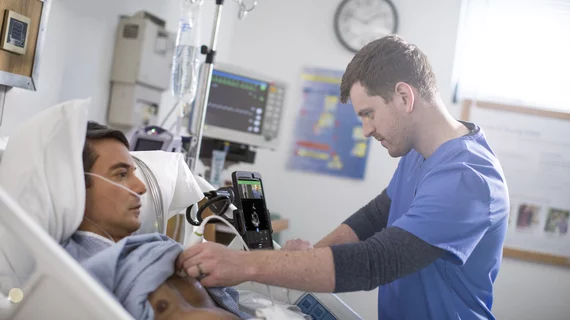New research suggests integrating multi-organ focused-ultrasonography as a part of a care plan for patients hospitalized with a cardiopulmonary diagnosis does not significantly impact their length of hospital stay.
“Focused clinical ultrasonography (FCU) has been shown to be a reliable and accurate test compared with the imaging reference standard,” contributing author, Ximena Cid-Serra, MD, PhD, with the Department of Surgery at the University of Melbourne, and co-authors explained. “The rationale behind the use of FCU is to improve the diagnostic fidelity and speed of clinical evaluation.”
When performed bedside, focused ultrasound can reduce the time it takes for physicians to complete their clinical evaluation. It has also been shown to increase the accuracy of a patient’s initial diagnosis. It would make sense then, that the speed at which a patient is evaluated would also translate into a quicker discharge, but recent study results published in JAMA Network Open suggest that’s not quite the case.
Doctors at the Royal Melbourne Hospital conducted a study that included a total of 248 patients who were admitted to the internal medicine ward with a cardiopulmonary diagnosis between September 2018 and December 2019. The patients were split evenly into two groups: a control group who received standard care, and an intervention group who underwent focused clinical ultrasound of the heart, lungs and lower extremity veins within 24 hours of their hospital admission.
Researchers considered a reduction in stay by 24 or more hours to be a “significant” clinically meaningful difference, but no participants in their study ever reached this threshold.
The patients were most commonly hospitalized with heart failure, pneumonia and exacerbated COPD. The participants who underwent FCU had an average hospital stay of 113.4 hours compared to the 125.3 hour stays for the patients who received standard care. Research indicated that both groups had similar readmission rates and total costs for their stays as well.
“Although there was a difference of 11.9 hours in the mean hospital LOS between groups, the result was not significant according to the prespecified clinically meaningful difference,” the authors concluded.
You can view the full research in JAMA Network Open.

